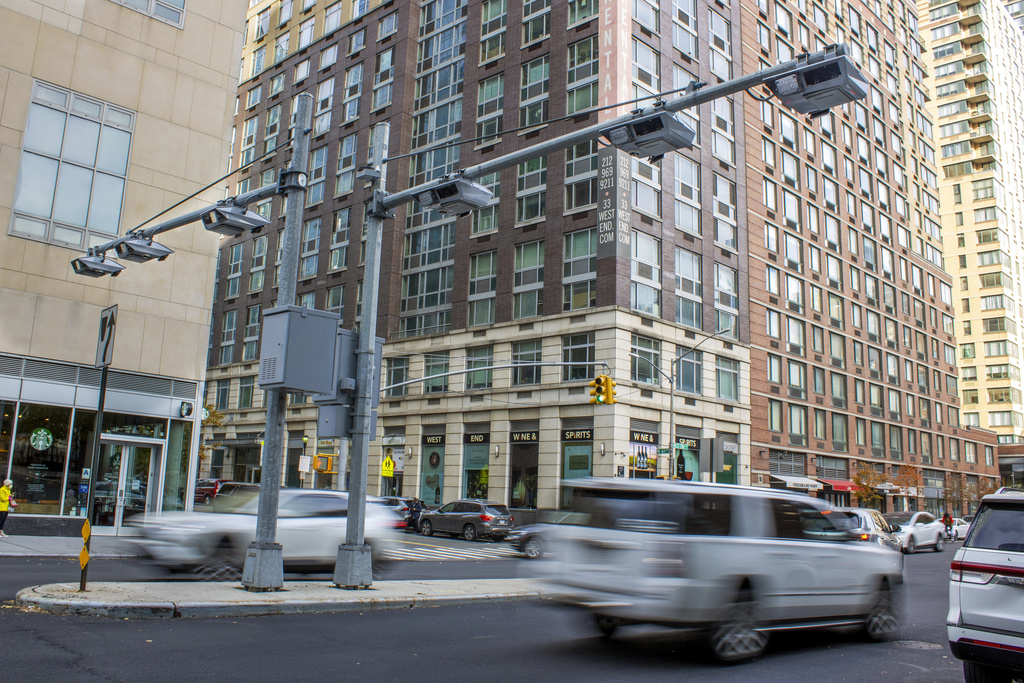New York’s first-in-the-nation plan to levy a hefty toll on drivers entering much of traffic-choked Manhattan is the focus of a legal battle set to play out in federal court Friday.
A Manhattan judge will hear arguments in a series of lawsuits from unionized public school teachers, local Republican officials and other New Yorkers seeking to put the brakes on the plan.
Most drivers in private cars, locals and tourists alike, heading into Manhattan south of Central Park should expect to pay about $15 during the daytime, with higher tolls for larger vehicles and lower rates for motorcycles and late-night entries into the city, according to the proposal finalized in March. Those who aren’t enrolled in a regional toll collection program will pay $22.50.
The lawsuits argue that the tolling scheme was given the green light by federal transportation officials without proper scrutiny and that more comprehensive environmental studies need to be completed.
They claim the fee will lead to more congestion and pollution as drivers take alternate routes to avoid the Manhattan toll. They contend that that low-income and minority communities already dealing with poor air quality will be particularly hard hit by the negative health impacts.
The suits argued drivers from other city boroughs and suburbs that lack adequate mass transit will take a disproportionate financial hit. Meanwhile small businesses in the congestion zone will face higher operating costs and fewer customers, they say.
The Metropolitan Transportation Authority, the agency overseeing the congestion fee plan, maintains it conducted extensive environmental reviews.
It says it found no significant impacts to area communities that could not be addressed by a range of proposed mitigation efforts, such as investments in electric buses to improve air quality.
The MTA says the fee will also help reduce traffic and improve regional air quality by discouraging driving into Manhattan. And it will provide a desperately needed annual cash infusion of around $1 billion for the city’s subway and bus systems, which carry some 4 million riders daily.
The agency has warned that any delays to the fee put vital capital improvements at risk, including plans to modernize some of the nation’s busiest subway lines. The MTA has said it intends to launch the fee June 30.
Judge Lewis Liman isn’t expected to issue a decision immediately after Friday’s daylong hearing.
Many of the claims in Friday’s lawsuits echo arguments made last month during a two-day hearing in a New Jersey federal court, where New Jersey Gov. Phil Murphy and Fort Lee Mayor Mark Sokolich have each filed suits.
Judge Leo Gordon, who is weighing those legal challenges, has said he plans to issue a written decision before the toll takes effect.
(AP)












One Response
They might have a better chance in state court since they can argue that the MTA is exceeding the powers granted it by the state (and issue which a federal court won’t address). The MTA is a New York State agency. In Federal court they will have to be arguing that New York State has no authority to establish toll roads within its territory (which probably should have been brought when the Thruway opened – but note that in the early years of the Republic, toll roads were fairly common).